Climate Camp Scotland is now well underway in Aberdeen, and protestors and activists from all across the UK and beyond have been busy setting up their tents.
There will be five days of camping within St Fitticks Park in Torry, including all manner of workshops, talks and events, as well as rallies this Sunday in the city.
The camp has been established in oil and gas city of Aberdeen in protest of the UK Government’s approval for Shell to drill the Jackdaw gas field in the North Sea.
Organisers are also keen to raise their concerns about the proposed Energy Transition Zone in Aberdeen, and highlight local concerns about the impact it could have on St Fitticks Park.
Hundreds of people are expected to arrive at the camp over the weekend, but just who are the people that have decided to pitch their tents in St Fitticks Park?
And what do they want to achieve with their protest?
We met some of the very first campers on Thursday night and asked them.
Quan Nguyen from Edinburgh
Quan Nguyen, an activist from Climate Camp Scotland, is one of the organisers of the Aberdeen camp.
A former Extinction Rebellion member, Quan, 30, travelled north from his home in Edinburgh to help organise the event.
A very friendly fellow, he showed us around the campsite, introduced a few of the other campers, and talked about what he wants from his trip to the north-east.
“I want a better sense of what Aberdonians think about the future of oil and gas,” Quan said.
“Because I think the general picture that is often painted is that Scotland as a whole, but especially Aberdeen and the north-east, they just love that oil money, and they love fossil fuel corporations.
“But I think that’s not true, and lots of people in Aberdeen know things need to change, and lots of people in industry know things need to change.”
Nick Humphries from Bristol
Nick Humphries is one of the many volunteers working in the kitchen to keep the campers fed for the duration of their stay.
He travelled all the way to Aberdeen from Bristol, having heard of the Aberdeen camp protest about a month ago.
“I was quite interested in getting into activism, and it’s something I’ve always been quite passionate about and interested in.”
We asked him what sort of food the campers will be tucking into at St Fitticks Park.
“It’s all plant-based, vegan and locally sourced with local suppliers”, he said.
Nick added: “It’s about showing a strong front for the cause of the local community here.
“We want to show solidarity and show that we support them, and have similar interests in the environment.”
Mim Black from Dunbar
Mim Black, 29, comes from Dunbar in East Lothian.
She highlighted the Climate Camp’s intentions to raise awareness of the ongoing local efforts to prevent development at St Fitticks Park.
Mim said: “We’ve been invited by the group to come up here, and the campaign is all about saving Torry’s last green space.
“Folk from here are very aware of the fact that historically, and currently, this community is pushed to the side and sold down the river for fossil fuel interests.
“We’re also here to really call out the government’s plans for expanding North Sea oil and gas, and we want to add our voices to the demand for a just transition.
“The same corporations that have caused the climate crisis are now seeking to cash in on the transition, and they’re not doing anything fast enough, or coming up with the right solutions, because they want to keep producing oil and gas.”
Bryce Goodall from Fife
Bryce Goodall, 32, came all the way from Fife to take part in the camping protest.
Bryce was one of those with climate concerns we spoke with last year on our Climate Crisis Road Trip, where we drove an electric van from John O’ Groats to Glasgow and spoke with communities along the way to COP26.
Needless to say, he is still very worried about the impact of climate change, and how it will affect Scottish residents.
“We came here with community support, we’ve done an incredible amount of outreach into the Torry and St Fitticks Park community, and we are here to support that local community, and they’re always welcome to come down here and join the conversation.
“These are the people who are impacted by the climate crisis. It’s absolutely shocking that for example the gas prices have shot up, and they’re plunging so many people, not just in Aberdeen, but across the UK into fuel poverty.
“We want to look at the solutions to these multiple crises.”
Ish Price from Edinburgh (but originally Tarland)
Ish Price, a gardener from Edinburgh, said coming to Aberdeen for the climate camp protest feels like a bit of a homecoming, as she grew up in Tarland.
She said she thinks it’s “pretty cool” to have the camp outside of the central belt of Scotland.
The 25-year-old, said: “Growing up in this area, I was always surrounded by oil, oil, oil, and that’s still the narrative, which sucks.
“And that’s not the fault of the people working in that industry, and I’m all for a just transition, but it’s not a sustainable way of living.”
She added: “I feel really passionate about this, I feel that if I’m not doing anything, then what am I going to tell the next generation?
“The climate is an absolute state, we’ve just seen such crazy weather, wildfires, it’s here and it’s happening.”
Ben ó Ceallaigh from Wales
Ben ó Ceallaigh, 32, journeyed to Aberdeen from his home in Wales to attend the camp.
The 32-year-old, originally from Galway in Ireland, argued there is “no room for further fossil fuel extraction, it has to be halted, immediately”.
When arriving in Aberdeen, he said he saw signs saying Aberdeen is the oil capital of Europe.
“There’s nothing to be proud about in that,” said Ben.
He continued: “I want to draw attention to the biggest crisis in the history of humanity, which is of course the present ecological one.
“There is literally no precedent for the scale of the challenge which we face, and I think if we don’t do everything we can now, it will be too late.
“Every year we delay action means more suffering, more flooding, more land underwater, more starvation, more people displaced, and I’m here to do what little an individual can.
“But of course by acting collectively we can amplify our voices.”
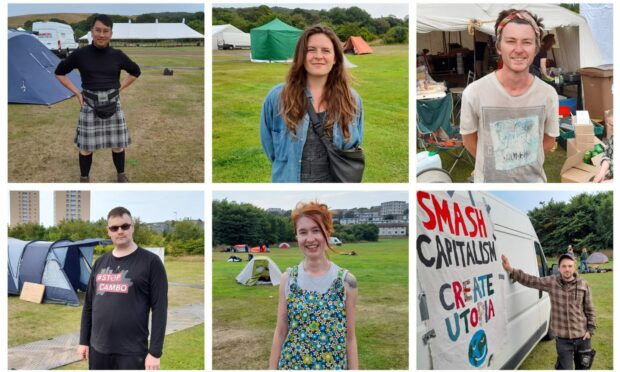
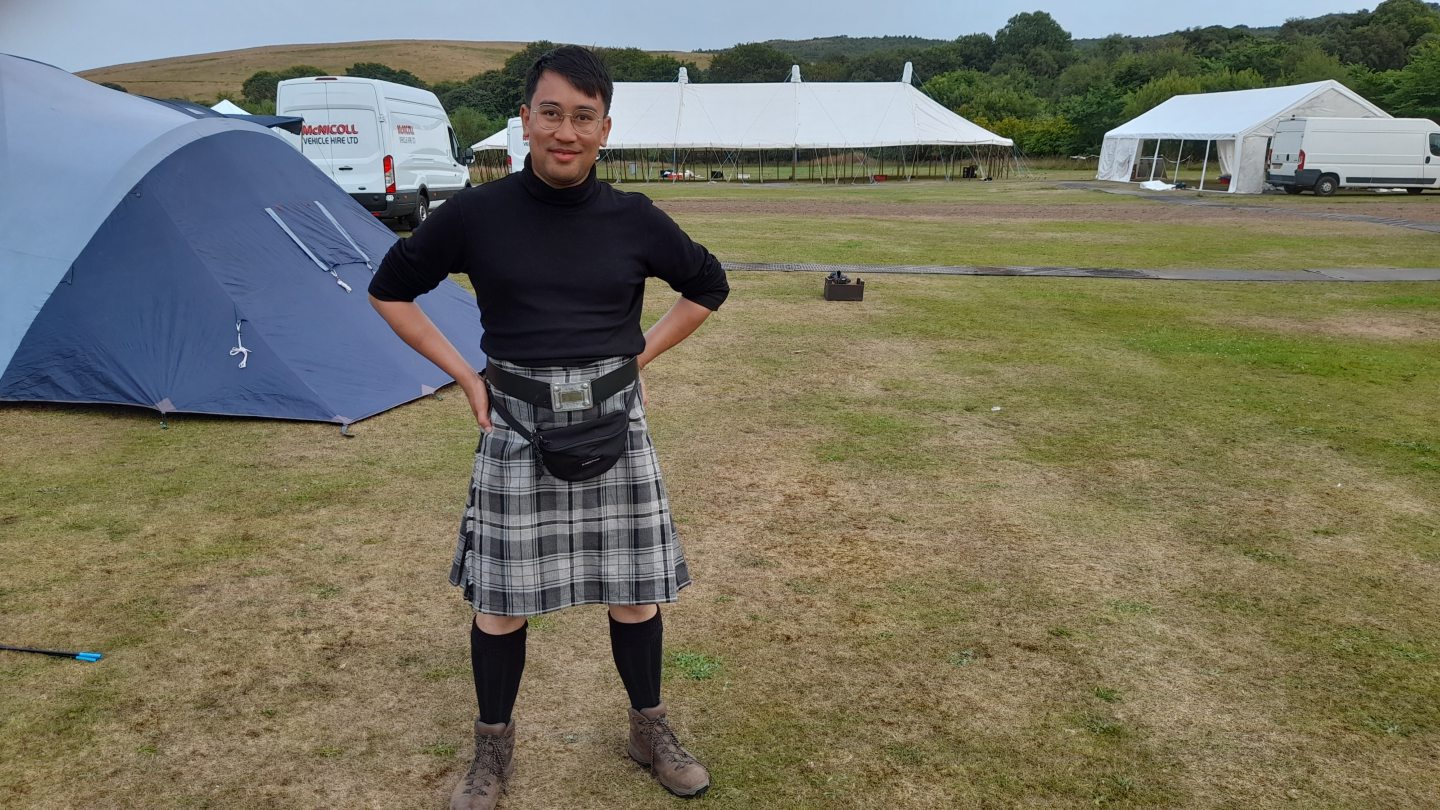
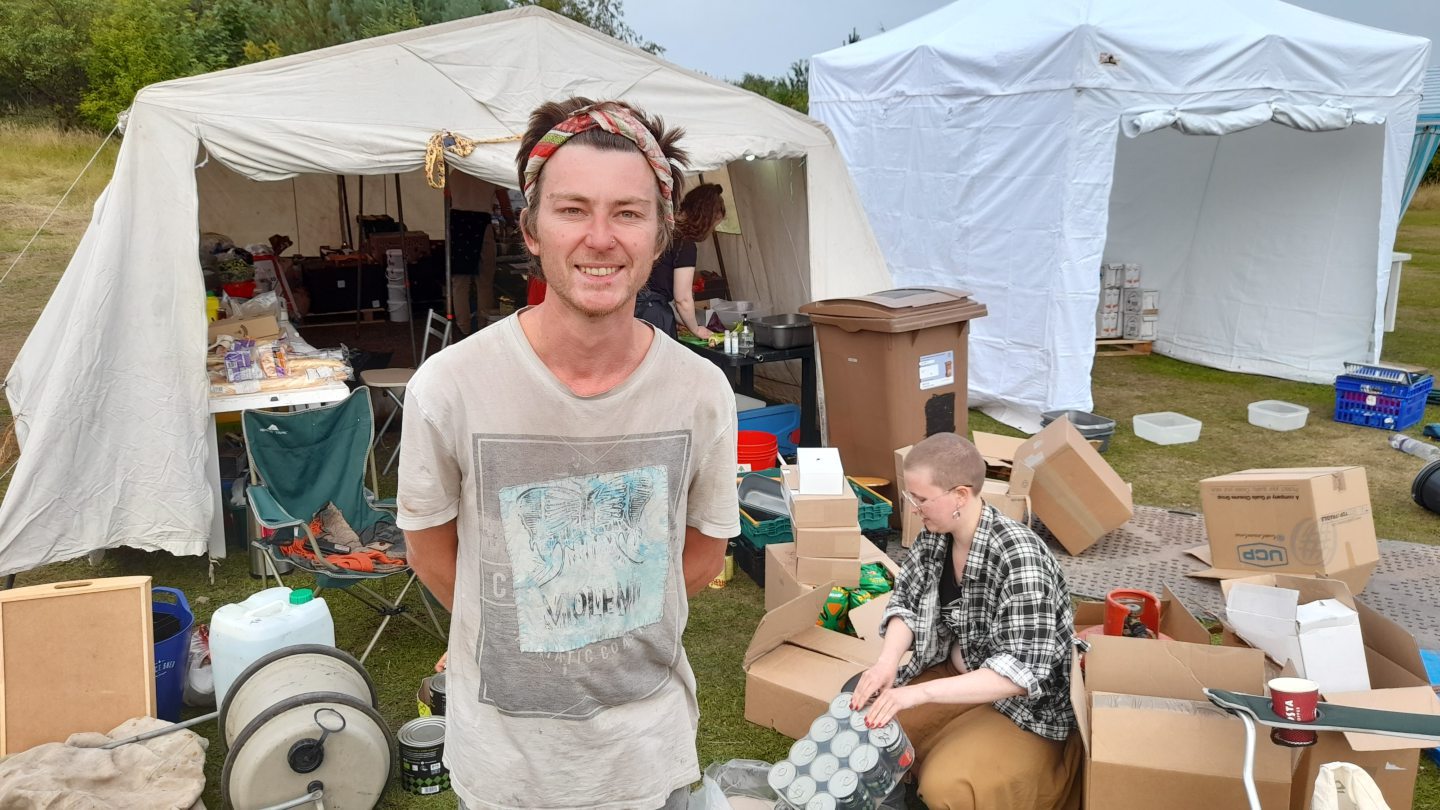
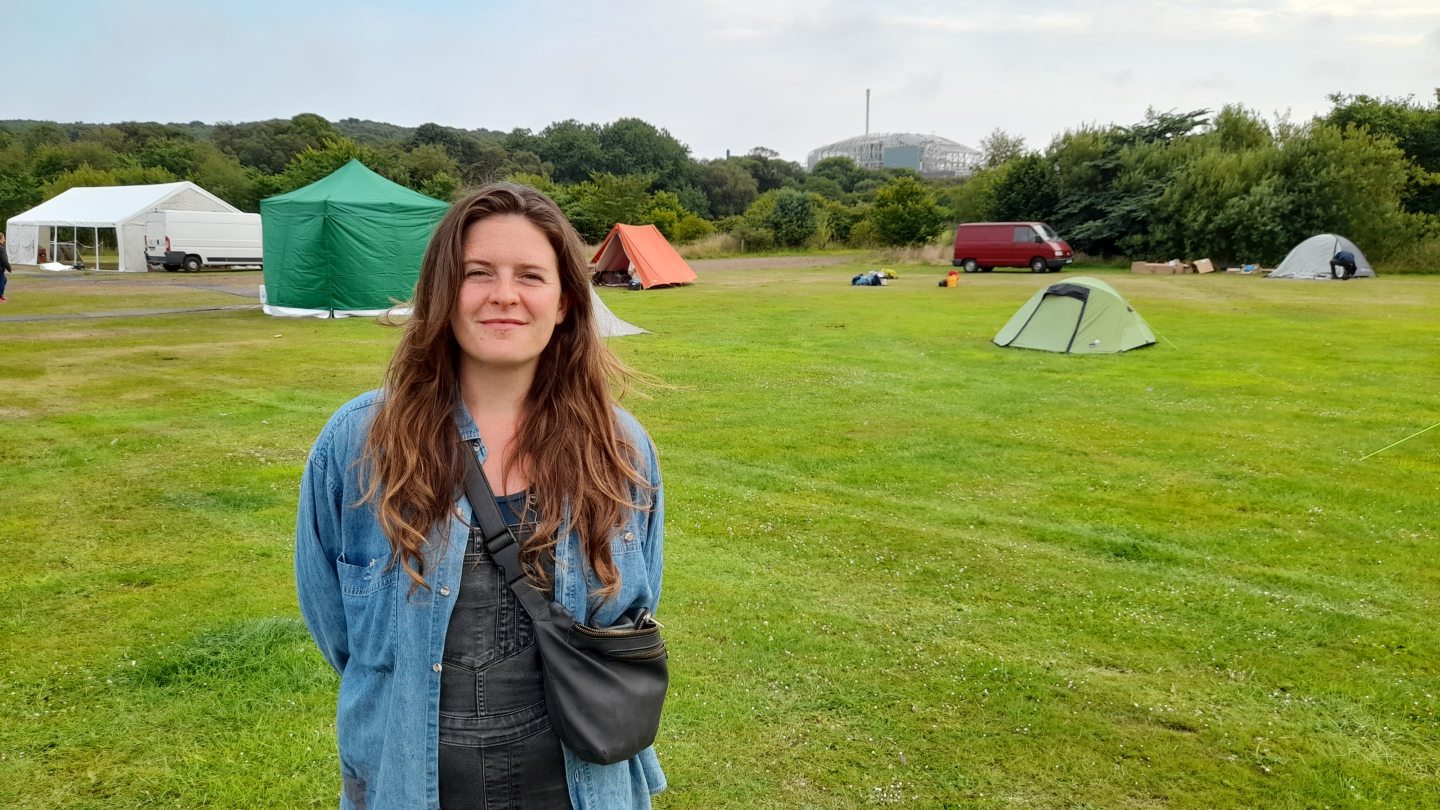
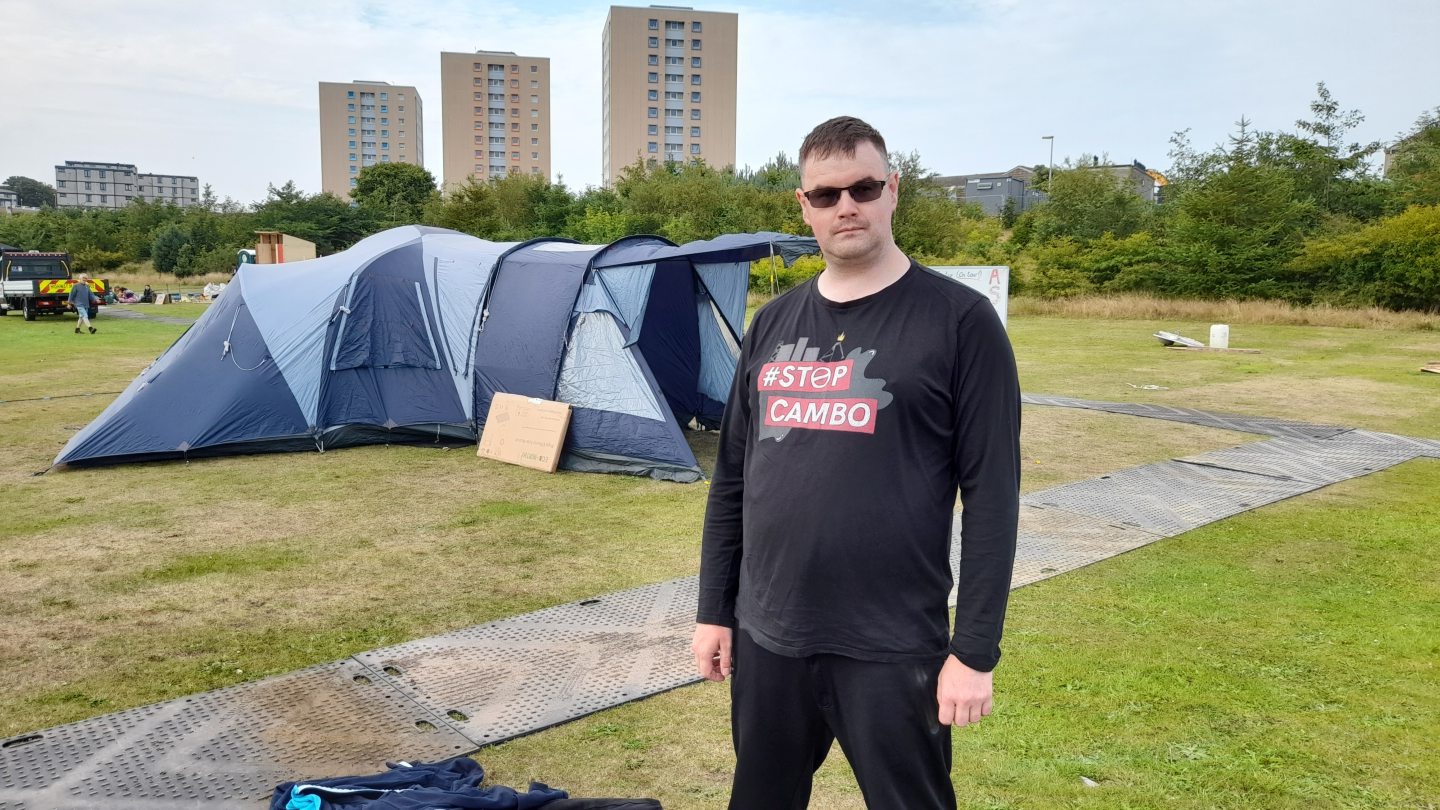
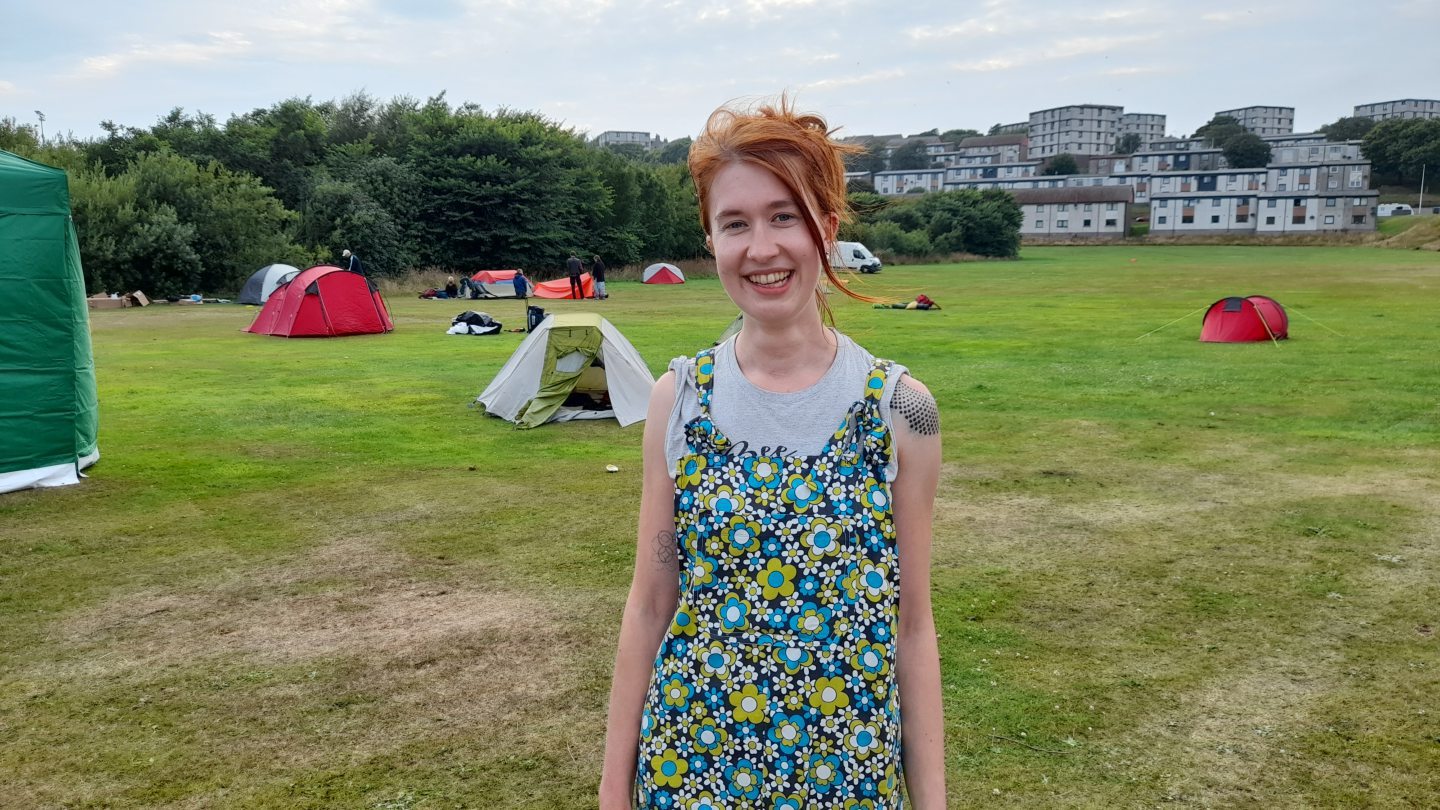
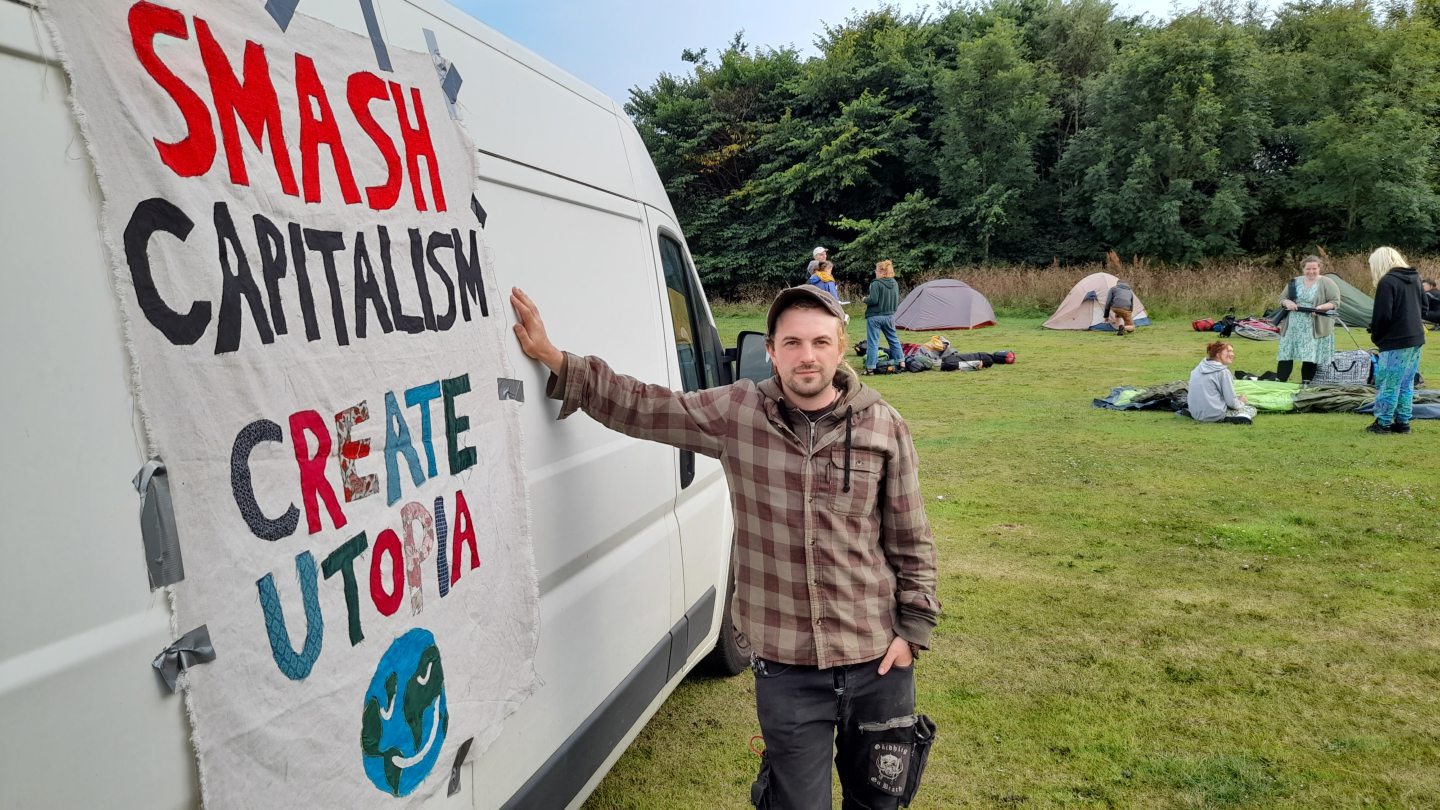
Conversation